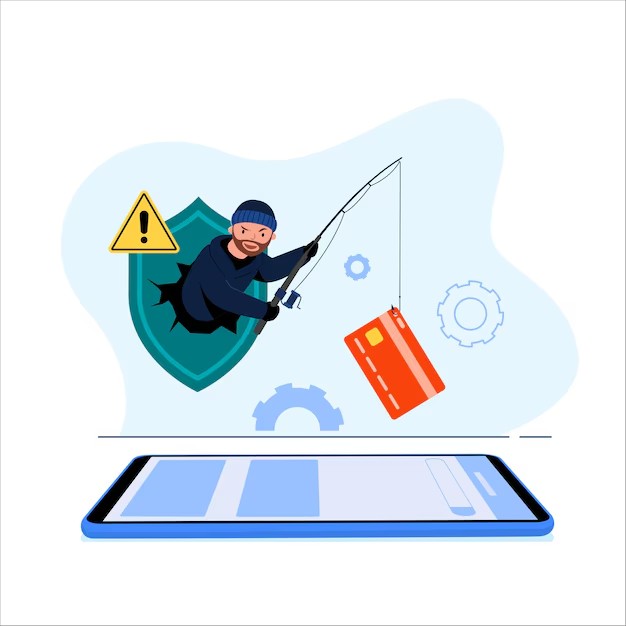
Cyber threats are becoming an ever-present concern in our lives. Whether you’re casually browsing the internet, working remotely, or running a small business, the dangers of falling victim to online attacks are real. Here’s good news though: you do not have to be an expert in cybersecurity or have an IT background. All you want is a few good practices in order to keep you secure; in other words, that by following just a few smart practices and taking pragmatic measures, you can decrease that risk appreciably. So let’s go through a few useful tips that can help you prevent common cyber risks.
1. Know What Cyber Threats Look Like
The first step in keeping secure is to know what you are against: the cyber threats that may be of many types, ranging from phishing emails presenting themselves as from your bank, links which look normal but actually install malware into your computer, or even fake text messages trying to get you to click on it.
Think of it this way: if it seems fishy, then it probably is. When something out of the blue requests that you “act urgently” or “verify your account,” take a moment to think. Rather than following links, go directly to that website. This little bit of prevention will keep a world of headaches away from you later on and help you stay anonymous online.
2. Keep Your Software Up to Date
You know that pop-up that keeps reminding you to update your device or an app? Don’t ignore it. Updates aren’t just about new features or bug fixes-they’re often about security. Hackers are constantly finding ways to exploit older versions of software, and updates patch these vulnerabilities.
This can be easily handled by simply setting your devices to automatically update. You won’t even have to think about it; your phone, computer, or apps will stay one step ahead of possible threats.
3. Strong and Unique Passwords
This one’s talked about a lot, but it’s still one of the most effective ways to stay safe. Your password is like the key to your house; you wouldn’t use the same key for every door you own, right? The same is true for password usage-not reusing them across multiple accounts.
Think about when you have to make a password; think of how you can build a “secret code” by interleaving letters-both heads and tails, numbers, and symbols. Even better would be to use a password manager. These programs create and maintain strong passwords for you in all the sites you subscribe to, so you can know everything is secure without you having to remember dozens of logins throughout your life.
4. Use Public Wi-Fi with Caution
Free Wi-Fi at a café or an airport may be considered a godsend, but this is also a potential risk in potential. On unsecured networks, hackers can hijack your data so easily, exposing sensitive information that could include your passwords or even banking details.
If you really have to connect to public Wi-Fi, make sure to use a Virtual Private Network, or VPN. A VPN creates a secure, encrypted tunnel for your data; so even if someone tries to snoop, they’ll only see gibberish. It’s like having a private, invisible shield around your online activities.
VPN services can be purchased as standalone options and also as a part of an ultimate security bundle product which is many times better for your security.
5. Think Before You Click
The Internet is filled with tempting links—scheming offers that look unbelievably great, urgent warnings about your account, even funny videos shared across all social media. Precariously enough, unassuming clicks can very easily plunge you into trouble. One click of the link that appears malicious might be able to initiate many cyber-attacks.
The rule of thumb here? If you are in doubt, don’t click. Check the source. If there is any doubt, an email or some message that asks for sensitive information from you, such as passwords or credit card details, is most likely to be a scam. If anything like this happens, it’s better to address the official website directly or contact the company directly.
6. Back Up Data on a Regular Basis
Just imagine how that would feel if, tonight, your files-photos, documents, work projects-are all lost, due to a ransomware attack or hardware failure. It’s a nightmare scenario, but one that’s easily preventable with regular backups.
Backing up your data involves creating copies of the important files and placing them in a safe location, such as an external hard drive or a secure cloud service. Even if something goes wrong, you’ll have peace of mind knowing your data isn’t lost forever. Make it a habit to back up your files weekly, or at least once a month.
7. Educate Oneself and Others
Knowledge is usually the best defense when dealing with cyber threats. This means that the more you are aware of how the threats work, the more you can prepare to avoid those threats. Keep your understanding up to date about the newest scams and share what you learn with friends and family. A good example is that many people still get hoodwinked with phishing scams because they do not recognize the signs. Casual conversations over risk, whether it be at the dinner table or over coffee, can actually create ripples of awareness. Cybersecurity, after all, is not a personal effort but a team one.
Final Thoughts
Staying safe online doesn’t need to be overwhelming or technical. It’s about getting into habits that protect you when online, just as it would be locking your doors and windows in the physical world. Simple steps, like being careful with emails, keeping software up-to-date, and choosing strong passwords, can be easily taken. And remember, you don’t have to be an expert to guard against cyber threats. A little awareness and a few proactive measures will go a long way toward keeping your information-and your peace of mind-secure.
Also Read: